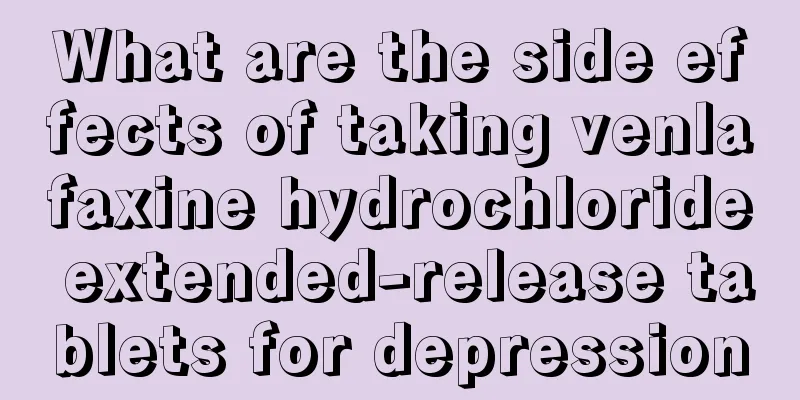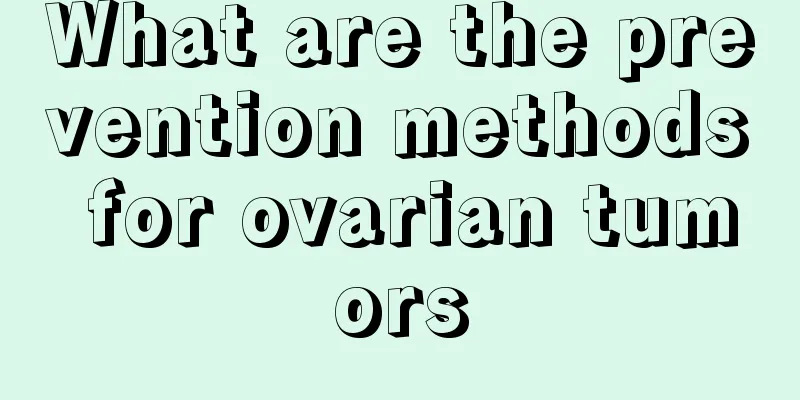What are the side effects of taking venlafaxine hydrochloride extended-release tablets for depression

|
Nowadays, most people are under pressure from all aspects. Some friends who have poor psychological endurance may develop psychological problems or diseases due to excessive pressure. For example, they may suffer from depression. If left untreated, the disease may cause serious consequences. Some patients may even commit suicide. Venlafaxine is a commonly used drug for the treatment of depression. So, what are the side effects of taking venlafaxine for depression? General Notes : Discontinue venlafaxine hydrochloride extended-release tablets Patients treated with venlafaxine should be systematically evaluated for withdrawal symptoms when the drug is discontinued, including the results of prospective analyses of clinical studies on venlafaxine for the treatment of GAD and retrospective surveys of venlafaxine for the treatment of depression. When patients suddenly stop taking medication or reduce high-dose medication, new symptoms may occur, and the frequency of symptoms increases with the increase in medication dose and treatment duration. Reported symptoms include: agitation, loss of appetite, anxiety, confusion, impaired coordination and balance, diarrhea, dizziness, dry mouth, irritability, fasciculations, fatigue, headache, hypomania, insomnia, nausea, nervousness, nightmares, paresthesias (electric shock-like sensations), drowsiness, sweating, tremors, vertigo, and vomiting. After the launch of venlafaxine hydrochloride extended-release preparations, other SNRIs and SSRIs, there have been some spontaneous reports of adverse events after discontinuation of the drugs, especially when the drugs are discontinued suddenly: irritability, irritability, agitation, dizziness, paresthesia (such as electric shock), anxiety, confusion, headache, laziness, emotional instability, insomnia, hypomania, tinnitus and epileptic seizures. The above symptoms are generally self-limited, but serious withdrawal reactions have also been reported. Patients should be monitored for these possible withdrawal symptoms when venlafaxine hydrochloride extended-release tablets are discontinued. It is recommended that the dose of either formulation of venlafaxine should be tapered gradually, avoiding abrupt discontinuation, and that the patient be monitored. If intolerable symptoms occur during the process of reducing or stopping the medication, you may consider returning to the previous therapeutic dose, and then your doctor may reduce the medication at a slower rate (see [Dosage and Administration]). Insomnia and tension Venlafaxine hydrochloride extended-release formulation (Effexor capsules) compared with placebo in the short-term treatment of depression and GAD. Often causes insomnia and tension. When using venlafaxine hydrochloride extended-release preparations to treat depression, the incidence of patients discontinuing the drug due to insomnia and tension was 0.9% respectively. In a study of venlafaxine hydrochloride extended-release for the treatment of GAD, the incidence of discontinuation due to insomnia and tension was 3% and 2%, respectively, in patients treated for more than 8 weeks, and 2% and 0.7%, respectively, in patients treated for more than 6 months. Changes in weight Adult patients: Clinical studies have shown that 7% of patients with depression receiving venlafaxine hydrochloride extended-release formulations and 2% receiving placebo experienced a weight loss of more than 5%. The proportion of patients who discontinued medication due to weight loss was 0.1%. In a placebo-controlled study of GAD, 3% of patients in the venlafaxine hydrochloride extended-release group and 1% of patients in the placebo group lost more than 7% of their body weight after 6 months. At 8 weeks of follow-up, 0.3% of GAD patients taking venlafaxine hydrochloride extended-release preparations discontinued medication due to weight loss. The efficacy and safety of venlafaxine combined with weight loss drugs (such as phentermine) have not been established. The concomitant use of venlafaxine and weight loss drugs is not recommended. Venlafaxine is also not approved for use alone or in combination with other therapies for weight loss. |
<<: What are the symptoms of myocardial infarction?
>>: Are there any side effects of taking Anjinyi
Recommend
What is the reason why oral ulcers always recur
If oral ulcers keep recurring, you should pay att...
Is it painful to have a recurrence of brain cancer?
Tumors that grow in the brain are generally calle...
What to do if your ears are ringing
Under normal circumstances, there will be no soun...
What are the hazards of removable dentures
Teeth are very important to everyone. Only with h...
What are the acupuncture points for frozen shoulder
Periarthritis of the shoulder is a relatively com...
Are hangover remedies really that effective?
Nowadays, there are many advertisements for hango...
What to eat after bladder cancer surgery
Bladder cancer patients should eat foods rich in ...
Methods for treating astigmatism and myopia
Nowadays, there are more and more electronic prod...
Can lithospermum officinale oil be used to treat eczema
Autumn is here. Although autumn is a very cool se...
Pulmonary dyspnea manifests itself in these three symptoms
Expiratory dyspnea is often manifested as labored...
Psychological manifestations and nursing strategies for patients with liver cancer
Liver cancer is recognized by the medical communi...
The front of my calves itch in summer
Summer is a season with very hot weather. In hot ...
Shock! Staying in bed in early spring may lead to early menopause
Staying in bed reduces hearing and memory General...
Silicone-free shampoo
Silicone oil has a wide range of uses, and the on...
How many deciduous teeth does a person have?
When we are young, we all grow deciduous teeth. D...









